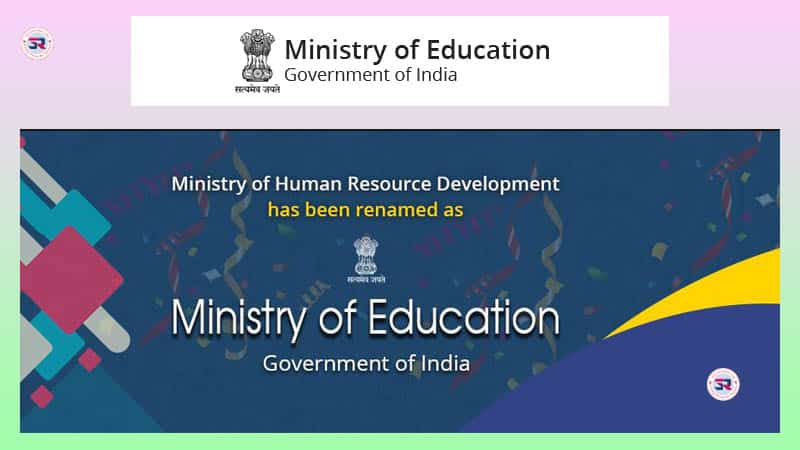New Education Policy 2020: The policy was launched on 29tth July 2020 with the approval of Union Cabinet. Further, Union Ministers for Information and Broadcasting (I & B) Prakash Javadekar as well as Human Resource Development (HRD) and Ramesh Pokhriyal Nishank made the announcement regarding New Education Policy- 2020.
Timeline for ECE & New Assessment Pattern Implementation
Early Childhood Education
Phase 1 (2021-22): Starting of 1 year of pre-primary school & 3-month preparatory module for Class 1 students
Phase 2 (2023-24): Increasing of 1 year of pre-primary school via primary schools & Anganwadis
Implementation of New Curriculum & Assessment
Class 9th: 2021-22
Class 10th: 2022-23 (New Board Exam Pattern for Class 10th)
Class11th: 2023-24
Class 12th: 2024-25 (New Board Exam Pattern for Class 12th)
Detailed Timeline for Implementation & Goals in NEP 2020
| 2021-22 | Formulation of NCFSE ( National Curriculum Framework for School Education) National Curriculum Framework for Teacher Education |
| 2022-23 | A common guide set of National Professional Standards for Teachers (NPST) Preparation of teachers for transformation in the assessment system |
| 2023-24 | — |
| 2024-25 | — |
| 2025-26 | Attainment of Universal foundational literacy and numeracy in every primary school for all the learners by Class 3 State/ Union Territories governments to optimize resources via mechanisms to group or rationalize schools, such as school complexes, etc. A minimum of 50% of learners should be exposed to vocational education in the school & higher education system |
| 2026-2027 | — |
| 2027-2028 | — |
| 2028-2029 | — |
| 2029-2030 | Universal equipping of early quality childhood care & development The qualification of teachers to be slowly moved into various multi-discplinary colleges & universities, with at least 4 year B.Ed degree qualification Now, only educationally sound, integrated teacher education, and multidisciplinary will come in force as well as TEIs shall be transformed into multi-disciplinary institutes |
| 2030-2040 | New Education Policy to be fully operational, a final review will be taken |
Key Principles of NEP- 2020
- Equal respect for Local Context & Diversity
- Equality and Inclusion
- Participation of Community
- Use of Technology
- Focus on Conceptual Understanding
- Encouraging Unique capabilities
- Critical Thinking & Creativity
- Continous Review
New Features of NEP- 2020
- Preparation of Schooling & Level of Elementary Schooling
- School Infrastructure & Resources
- Complete Development of the student
- Inclusivity
- Assessments
- Curriculum & Pedagogical Framework
- Teacher Qualification/ Recruitment
- Role of Government/ Bodies/ Institutions
Brief Discussion of New Features
Feature 1: Preparation of Schooling & Level of Elementary Schooling
- Early Childhood Care & Education (ECCE) for everyone by the year 2030
- Achievement of 100% Gross Enrolment Ratio in school education by the year 2030
- Balvatika/ Preparatory class for 5-6-year-old children in pre-schools/ Anganwadis
- School preparation modules for each Class 1st entrants
- Setting up of Bal Bhavans
- National Foundational Literacy and Numeracy Mission
Feature 2: School Infrastructure & Resources
- Special Education Zones (SEZ)
- Utilization of the unused capability of schools as Samajik Chetna Kendras
- School complex/ clusters for sharing of resources
Feature 3: Complete Development of the student
- ‘No separation of curricular, extra and co-curricular, Arts and Science, Sports and vocational crafts. The curriculum should instill and integrate Indian culture & arts
- Digital Libraries & policy of book promotion
- Exploring of Innovative pedagogies, such as experiential teaching/ method of learning
- AI-based software to track student’s growth through school years
- Integration of Vocational Education from primary grades and 10 days (no bag days) internship with local trades/ craftsperson from Class 6th- 8th
- Local artists to be master instructions in schools
Feature 4: Inclusivity
- Gender Inclusion Fund for female & transgender students, extension of KGBVs to Class 12th, and equal opportunity to everyone
- Special provisions for gifted children
- AE (Adult Education) to focus on technology-based solutions
- NIOS expansion to include vocational courses & courses for Class 3rd, 5th, and 8th
- The medium of instruction will be mother tongue/ local language till Class 5th
Feature 5: Assessments
- PARAKH: National Assessment Center for Performance Assessment, Review & Analysis of Knowledge for Holistic Development
- Exams to take place in Class 3rd, 5th 8th, in addition to the exams in Class 10th & 12th
- Board Exams: Modular, low stakes, on the basis of conceptual knowledge as well its application
Feature 6: Curriculum & Pedagogical Framework
- New Curricular & pedagogical framework of 5+3+3+4
- Reducing curriculum to core concepts
Identifying life skills to attain in every grade as a part of NICF
ICT integration in teaching & learning methodologies
Feature 7: Teacher Qualification/ Recruitment
- The minimum qualification degree for teaching will be a 4-year Integrated B.Ed degree by2030
- Recruitment of the teacher on the basis of TET, NTA Test as well as teaching demonstration; TET compulsory for teaching
- Teacher’s minimum in-service should be 50 hours/ year
- Nationa Professional Standards for Teachers (NPST) by the year 2022
- Every PhD student has to do a module on the education of teacher
- IT & Data Based predictive planning for the requirement of students in TEIs. Also, TEIs to be moved to multi-disciplinary colleges and universities by 2030
Feature 8: Role of Government/ Bodies/ Institutions
- Every state department will look after policy making. Directorate of Education (DTE) will overlook the operations. Also, SCERT is responsible to keep a check on the academics. Further State School Standards Authority will set up a few common standards for the online self-disclosure by all the public as well as private schools
- Students to give online feedback on seld-disclosure by schools
- Desire to re-designation of Ministry of Human Resource Development (MHRD) to Ministry of Education (MoE) to shift the focus on education and learning

